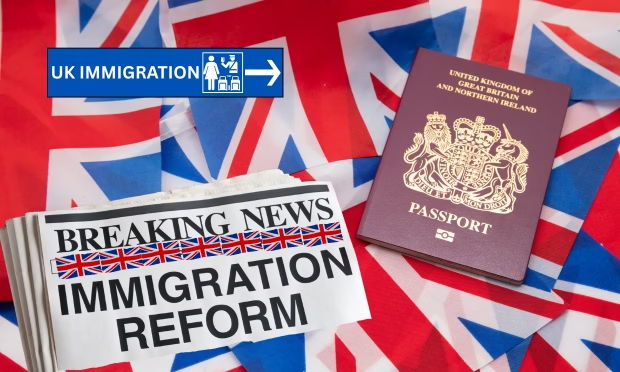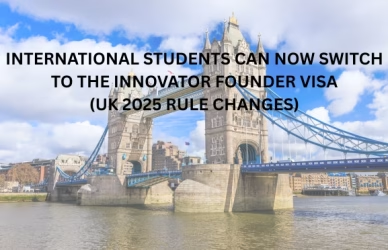The UK government released a pivotal white paper titled “Restoring Control Over the Immigration System” on 12th May 2025. This policy document signals a major shift in the UK’s immigration strategy, aimed at reducing overall migration,
prioritising higher-skilled roles, and placing a stronger emphasis on domestic workforce development and training initiatives.
While this white paper does not change current immigration law, it clearly outlines the government’s intent to introduce stricter entry requirements, higher salary thresholds, and tighter oversight for sponsoring employers in the near future. Organisations, educational institutions, and migrants must begin preparing now, reviewing recruitment plans, upskilling pathways, and compliance processes to remain aligned with evolving expectations.
Key Proposed Changes
1. Social Care Visa Removal
The exemption allowing the recruitment of overseas social care workers will end. This move is expected to have a major impact on the care sector’s workforce strategy.
2. Skilled Worker Visa Restrictions
The government intends to shorten the list of eligible jobs for sponsorship under the Skilled Worker visa. Jobs classified as “medium-skilled” (RQF level 3) will only remain eligible if specifically recommended by the Migration Advisory Committee and if the sector shows substantial domestic recruitment efforts.
3. Graduate Visa Shortened
The length of the Graduate visa (for international students staying post-study) will reduce from 2 years to 18 months.
4. Tighter Student Visa Compliance
Universities will face stricter visa compliance rules to retain their sponsorship license, and a levy on international student fees is under review.
5. Higher English Language Standards
The government will raise English proficiency requirements across visa categories, including for dependants of skilled workers.
6. Ten-Year Route to Settlement
One of the most debated proposals: extending the standard qualifying period for Indefinite Leave to Remain (ILR) from 5 years to 10 years, with a shorter route for certain high-value contributors under an “earned settlement” scheme.
7. Boost for Highly Skilled Talent Routes
In contrast to the restrictive measures, the white paper supports growth in routes like Global Talent and High Potential Individual visas, aiming to attract top-tier international professionals.
8. Family and Human Rights Reforms
The white paper hints at reforms to Article 8 (right to family and private life) and the deportation process for foreign national offenders, though full details are pending.
When Will These Changes Take Effect?
- There are no immediate changes. The government states that changes will roll out over the course of this Parliament (up to 2029), with some reforms expected within weeks. Public consultations, especially on the “earned settlement” model, are due later in 2025.
Implications for Employers and Migrants:
- Employers should begin revisiting their hiring strategies and sponsorship compliance policies.
- Care sector organisations will need to invest in domestic recruitment or lobby for sector-specific exemptions.
- International students and universities must prepare for reduced post-study work opportunities and heightened scrutiny.
- Migrants planning for long-term settlement must adapt to longer timelines and stricter language and economic contribution benchmarks.
Conclusion:
The 12 May 2025 white paper marks the beginning of a more restrictive era in UK immigration. While many measures are still in the proposal stage, their potential impact is significant. Employers, especially in healthcare, education, and social care, should proactively assess how these changes may affect staffing and long-term planning.
REFERENCE:





